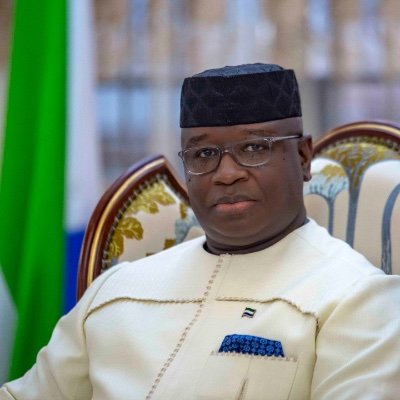“Once again, we shall be the economic envy of the entire world after blocking all leakages in our economy because the revenue base will increase massively and we shall efficiently address our social service protection issues”, with these characteristically modest words Maada Bio’s government wasted no time to take credit for the strong growth in revenue collection of the Sierra Leone Gross domestic product (GDP). Reactions to this statement have mostly focused on one question: Is this growth real and sustainable? But this largely misses the point. The question instead should be: Is this growth real and useful?
The answer depends on what you know about growth in general and what you know specifically about well-being in Sierra Leone Growth, that is growth of GDP, measures only economic activity: goods and services traded on markets for a monetary value. Well-being on the other end paints a much more extensive, accurate and up-to-date picture of economic development using a plurality of indicators to answer key questions: is income fairly shared? Are workers healthy? Are institutions underpinning markets robust? Are social service protection sustaining human well-being vigorous? Are our democratic institutions meant to uphold democratic values really operating independently without political interference from the Executive Arm of government? Is our contraption conventionally at high risk because we don’t have legislatures that check the president’s behaviour and legal rules don’t really apply to restrain the president from doing ugly things? Is our contraption also tend to be the same place where you’re most likely able to get the benefits of a monopoly deal by striking a deal with the President, or his close political allies, which sometimes include the ruler’s family members?
On all these counts for the last months, strong growth in Sierra Leone has obscured the reality of weak well-being. Income inequality is at an all times high and second to none among the world’s comparable countries. Life expectancy is declining while scores of Sierra Leoneans have been dying of “social despair”. Trust in the Presidency and confidence in democracy is dismal with political polarisation stronger than ever. Justice is weakened and increasingly suffering from the loss of competent leadership and the impact of unpatriotic actions. This is nothing to dream about.
True enough, in the middle of the past elections campaigns, when all those economic predicaments of the former government were still brewing and fully apparent, our current President and his former Finance Minister assured us that if we block the leakages in our economy we can efficiently address our social service protection. Today, the “New Direction” government is replicating the “old economy” boom pattern of the past regime fuelling the growth of the selected few whilst the majority remain poorer with all the increase in revenue collection. Also true, nothing in the contraption is good for the suffering majority: No genuine effort impressively combines with a nationalistic sense of purpose for economic dynamism, social justice and youth empowerment. We currently find ourselves caught in a cultural crisis that emboldens extremist parties.
But it remains that the fixation of the President and his former Finance Minister public declarations on blocking leakages which will lead to a genuine increase in our growth data by this current government is not only misleading but perilous. Because it only captures and reflects so little of what’s happening and matters in our complex society, growth is now fake news: it is not progress, it is the illusion of progress. And the “New Direction” government of Maada Bio has become the poster child of this deception.
So what should we actually be concerned about? Instead of growth, well-being (human flourishing), resilience (resisting shocks) and sustainability (caring about the future) should become our new collective goals. This is the meaning of the well-being transition underway in many countries and localities around the world especially as the effect of the COVID-19 pandemic continue to affect economies around the globe. Because these three horizons have been overlooked by mainstream economic thinking in the last decade, our social world continues to be mismanaged and our prosperity is now threatened by inequality with misleading politicians. The most enviable policy in the contraption is to start measuring and managing what counts in order to protect what matters.




